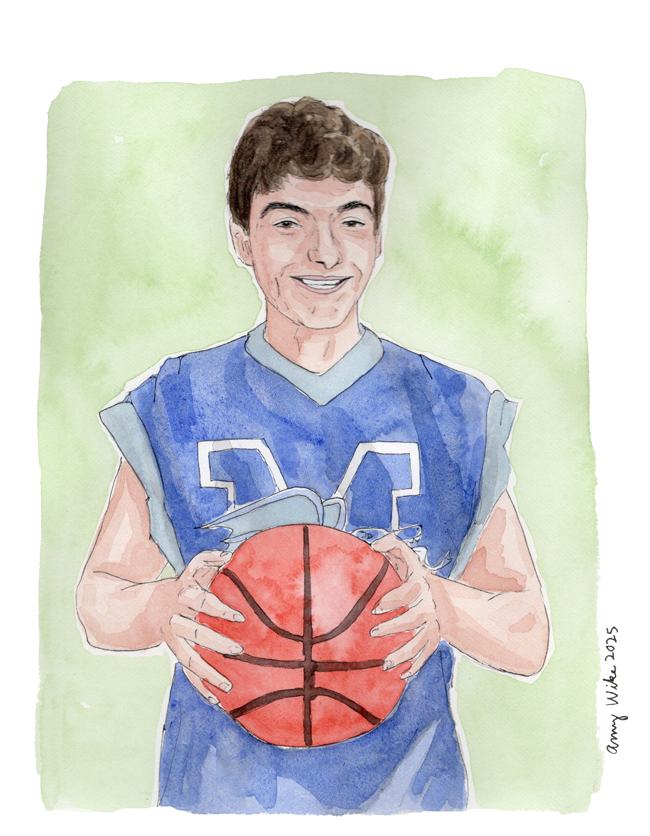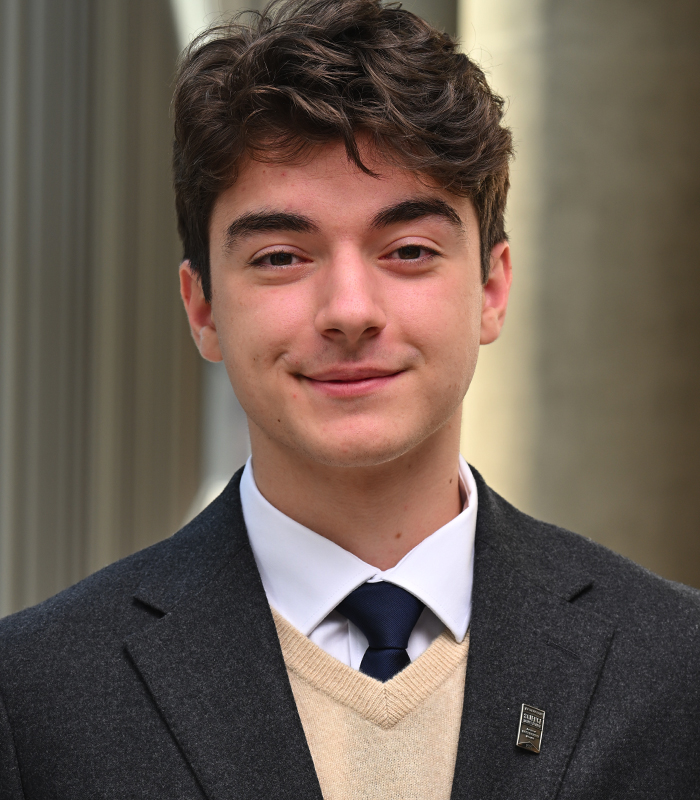Aiden Sanxhaku
Julia R. Masterman High School
Philadelphia, Pennsylvania
Cation-Effect on Alk. Redox Flow: Enhancing Electron Transfer Kinetics Through Electrolyte Additives
Aiden found a way to make iron-based aqueous redox flow batteries (RFBs) more efficient.
View Poster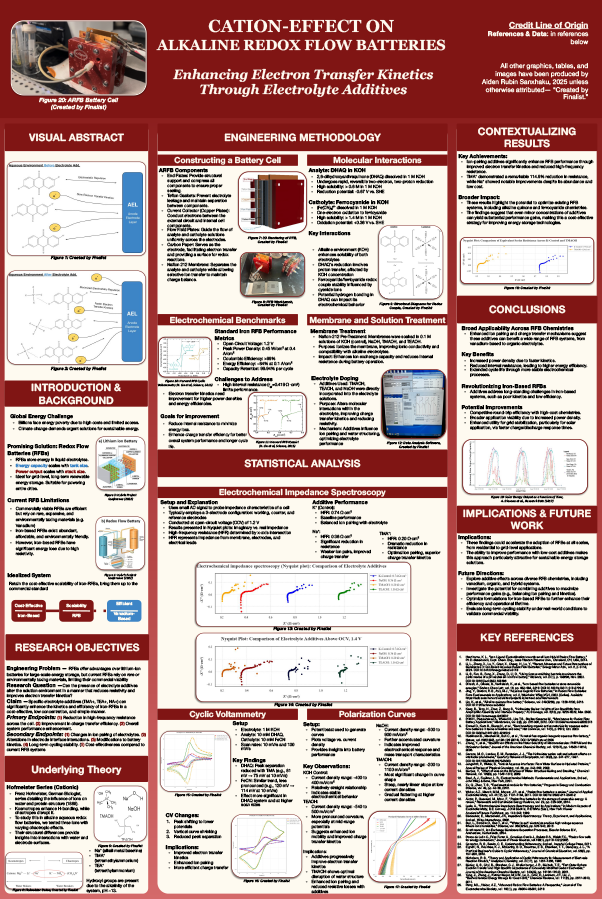
Aiden Rubin Sanxhaku, 18, of Philadelphia, studied redox flow batteries (RFBs) for his Regeneron Science Talent Search materials science project. RFBs are a promising large-scale energy storage technology — they can last 25 years or more. They are also nonflammable, nontoxic and environmentally friendly. Aiden proposed a simple solution to increase the efficiency of iron-based aqueous RFBs. This battery type has a much lower power density than lithium batteries.
In his project, Aiden found that low levels of metal additives improved RFB power density and sped up charge/discharge. It also reduced resistance by up to 115%. His work brings iron-based aqueous RFBs closer to the commercial efficiency of lithium-ion batteries. This would enable more widespread use of this tech in renewable energy systems.
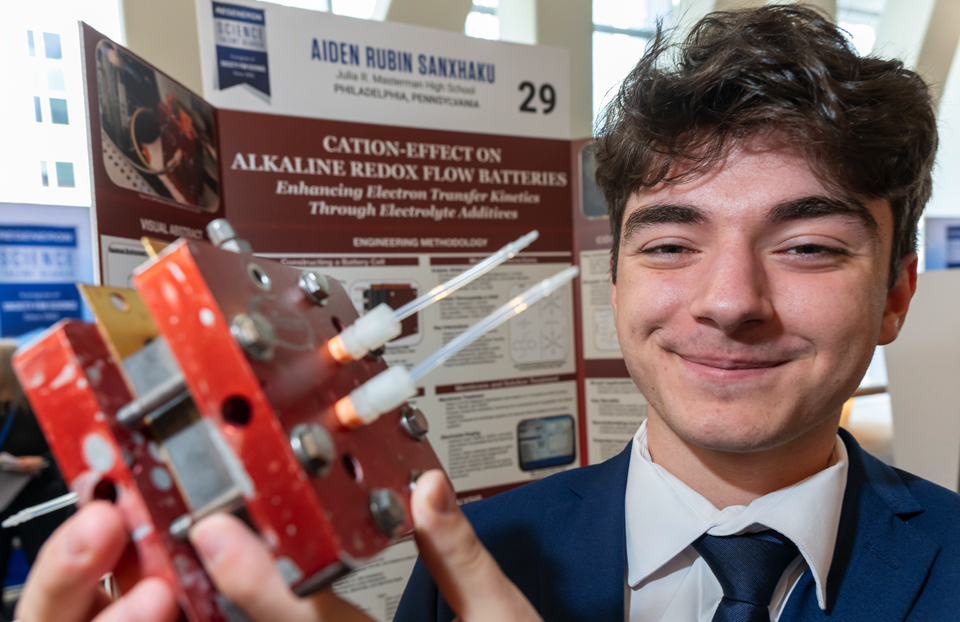
Aiden, son of Jemin and Teuta Sanxhaku, attends the Julia R. Masterman High School. He is co-captain of the Science Olympiad, plays clarinet and tenor saxophone in orchestra and jazz band and is on the varsity soccer team. He shares his love for building rockets as the founder and leader of his school’s physics and engineering club and a district-level competition called The Philadelphia Rocketry League.
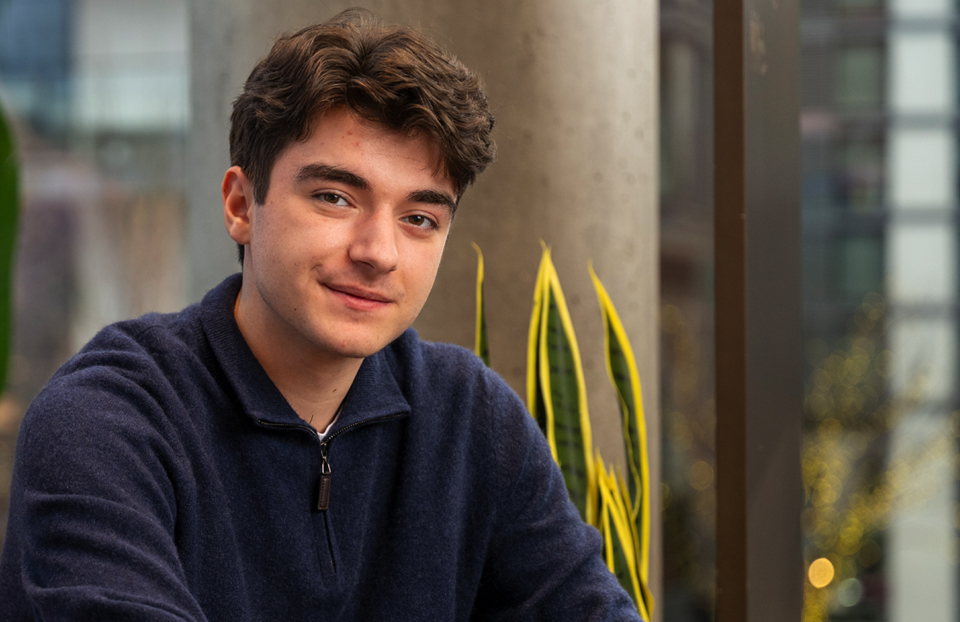
Beyond the Project
Aiden and two other students built an AI productivity tool. Their company, InQ Technologies, earned seed funding as a part of Microsoft for Startups Founders Hub and NVIDIA’s Inception Program for Startups.
FUN FACTS: Aiden loves to cook for others. When Aiden was younger, he regularly cooked dinner with his father. He sees cooking as a tool for self-expression. He is also a musician and plays soccer.
